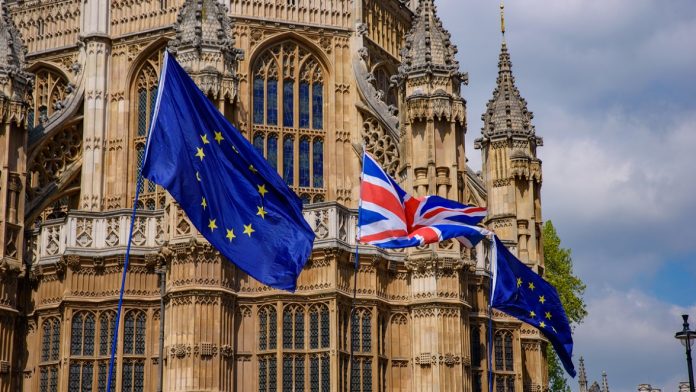The pound finished flat versus the euro on Monday. The pound euro exchange rate dipped to a low of €1.0904 before clawing back some gains to end the session at €1.0947. The pair is seen drifting lower in early trade on Tuesday.
| What do these figures mean? |
| When measuring the value of a pair of currencies, one set equals 1 unit and the other shows the current equivalent. As the market moves, the amount will vary from minute to minute.
For example, it could be written: 1 GBP = 1.13990 EUR Here, £1 is equivalent to approximately €1.14. This specifically measures the pound’s worth against the euro. If the euro amount increases in this pairing, it’s positive for the pound . Or, if you were looking at it the other way around: 1 EUR = 0.87271 GBP In this example, €1 is equivalent to approximately £0.87. This measures the euro’s worth versus the British pound. If the sterling number gets larger, it’s good news for the euro. |
The pound moved lower in the previous session amid reports of food and medicine shortages, trade disruption and civil unrest in the case of a disorderly Brexit. The leaked government Yellowhammer papers, which laid out contingency plans in the case of a no deal Brexit unnerved already jittery pound traders. Economists have frequently warned over the negative impact that a no deal Brexit could have on the economy. The leaked government document supports the idea that the UK economy will suffer aftershocks in the days, weeks and months post a no deal Brexit.
| Why is a “soft” Brexit better for sterling than a “hard” Brexit? |
| A soft Brexit implies anything less than UK’s complete withdrawal from the EU. For example, it could mean the UK retains some form of membership to the European Union single market in exchange for some free movement of people, i.e. immigration. This is considered more positive than a “hard” Brexit, which is a full severance from the EU. The reason “soft” is considered more pound-friendly is because the economic impact would be lower. If there is less negative impact on the economy, foreign investors will continue to invest in the UK. As investment requires local currency, this increased demand for the pound then boosts its value. |
Leader of the opposition, Jeremy Corbyn did little to boost the pound in his speech yesterday. The Labour leader called for a vote of no confidence and promised to do everything needed to avoid a no deal Brexit. Corbyn also pledged to hold a second referendum if a general election is called this year. Today’s focus will be on Prime Minister Boris Johnson as he visits Angela Merkel of Germany and President Macron of France. The Prime Minister is expected to tell them that the EU must offer a new deal or face the UK leaving without a deal.
Today there is no high impacting UK data. Brexit headlines and rumours will continue to drive the pound.
Eurozone Inflation Weakens
The euro was relatively subdued in the previous session despite weak inflation data. Inflation fell by a more forecast -0.5% month on month in July. This was below the 0.2% increase experienced in the previous month. Annually inflation increased a lacklustre 1%, below the 1.1% analysts were predicting and well below the European Central Bank’s 2% target.
A weak inflation figure combined with policy maker Olli Rehn’s comments last week have investors assuming that the European Central Bank could look to cut interest rates as soon as this month.
| Why do interest rate cuts drag on a currency’s value? |
| Interest rates are key to understanding exchange rate movements. Those who have large sums of money to invest want the highest return on their investments. Lower interest rate environments tend to offer lower yields. So, if the interest rate or at least the interest rate expectation of a country is relatively lower compared to another, then foreign investors look to pull their capital out and invest elsewhere. Large corporations and investors sell out of local currency to invest elsewhere. More local currency is available as the demand of that currency declines, dragging the value lower. |
Today is a relatively quiet day for economic data. German producer price index (PPI) could catch the attention of traders. PPI represents inflation at factory level. Weak PPI can indicate weaker future consumer inflation.





